
Published Friday, November 23, 2018 at: 7:00 AM EST
The stock market had another difficult week. The benchmark Standard & Poor's 500 index slid back 10% below its most recent all-time high in September, as a recalibration of earnings growth continued.
After rising for six consecutive months, the rate of improvement in the U.S. Index of Leading Economic Indicators slowed significantly in October. The LEI rose one-tenth of 1% in October, down from +0.5% in September and +0.4% in August.
"The index still points to robust economic growth in early 2019, but the rapid pace of growth may already have peaked," according to The Conference Board, a private business group that maintains the LEI.
The LEI is a composite of 10 indexes of U.S. economic strength, including forward-looking components, like new orders at manufacturers. The LEI definitively broke lower well in advance of the last two recessions.
A slower rise in the pace of growth is very different from a recession, when the economy shrinks and growth goes negative. That's not what's happening now.
The economy and stock market are coming off a period of heady growth. Over the decades, earnings of the S&P 500 grew at an average annual rate of 7.7%, but earnings grew 12% in 2017 and, according to the most recent estimates by Wall Street analysts, earnings are expected to grow by 23% in 2018. With 2018 now almost over, analysts in the last few months have a more realistic picture of what is likely to happen in 2019, and they currently expect 9% profit growth.
Earnings on the S&P 500 peaked in the third quarter and are expected to be 33% higher than a year earlier. For the fourth quarter, analysts expect earnings to be 22% higher than a year earlier. However, they expect earnings growth to slow sharply, to 9%, in 2019. What's it mean?
When S&P 500 earnings expectations slow, it does not mean profits go negative and that America's largest publicly-held companies are reporting operating losses. The green arrows highlight periods during the last three bull market cycles when earnings shrunk. Just because earnings growth expectations are reined in, it does not mean the stock market is headed for a fall. When companies are expected to report quarter after quarter losses for sustained periods, a bear market drop of 20% becomes more likely. Operating losses on the S&P 500 are not projected now, just slowing profit growth.
The S&P 500 closed the Thanksgiving week 10% from its all-time closing high of 2930.75.
"While near term economic growth should remain strong, longer term growth is likely to moderate to about 2.5% by mid to late 2019," according to economist Ataman Ozyildirim, global research chair at The Conference Board.
Earnings peaked last quarter and investors are recalibrating sales and profit growth expectations for 2019, which has made stocks more volatile.
No one can predict the market, but volatility is higher and is likely to remain so.
12017, 2018 (estimated) and 2019 (estimated) bottom-up S&P 500 operating earnings per share as of November 12, 2018: for 2017, $131.98; for 2018(e), $162.65; for 2019(e), $177.25. Sources: Yardeni Research, Inc. and Thomson Reuters I/B/E/S for actual and estimated operating earnings from 2015. Standard and Poor's for actual operating earnings data through 2014.
This article was written by a veteran financial journalist based on data compiled and analyzed by independent economist, Fritz Meyer. While these are sources we believe to be reliable, the information is not intended to be used as financial or tax advice without consulting a professional about your personal situation. Tax laws are subject to change. Indices are unmanaged and not available for direct investment. Investments with higher return potential carry greater risk for loss. Past performance is not an indicator of your future results.
This article was written by a professional financial journalist for Advisor Products and is not intended as legal or investment advice.
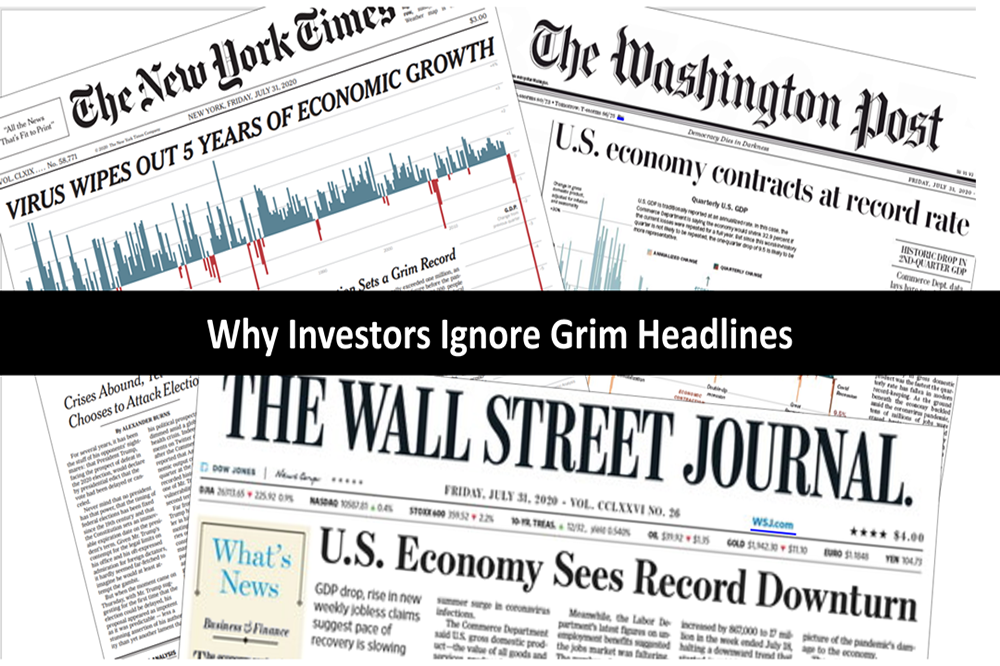 Despite Grim Headlines, Stocks Rose Sharply -- Why?
Despite Grim Headlines, Stocks Rose Sharply -- Why?
 The Paradigm Shift In Valuing Stocks
The Paradigm Shift In Valuing Stocks
 Retail Sales And Housing Starts In June Reveal Recovery's Shape
Retail Sales And Housing Starts In June Reveal Recovery's Shape
 A Spectacular Year For Stocks
A Spectacular Year For Stocks
 A Case For A Bull Market In 2020
A Case For A Bull Market In 2020
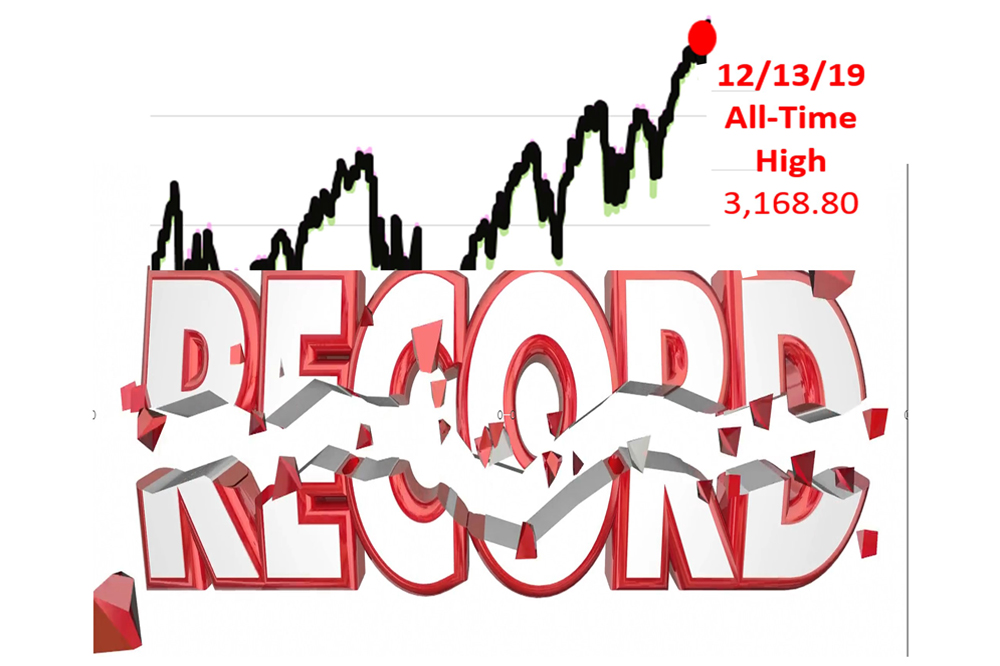 Good Economic News Again
Good Economic News Again
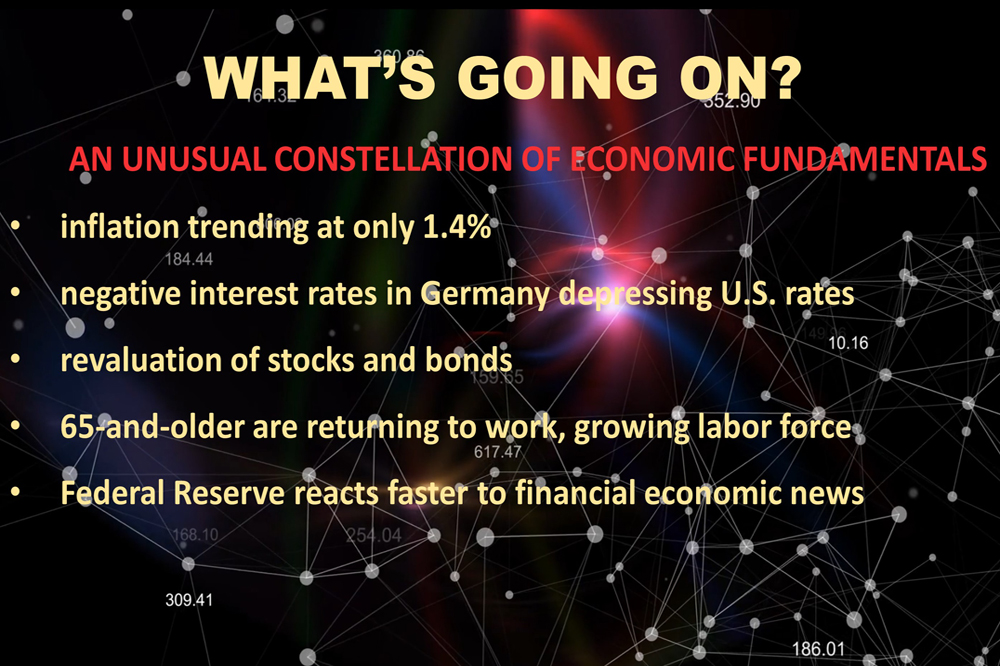 An Unusual Constellation Of Economic Surprises
An Unusual Constellation Of Economic Surprises
 Longest U.S. Expansion Keeps Rolling
Longest U.S. Expansion Keeps Rolling
 Retirement Income Reality Check
Retirement Income Reality Check
 Find The Major Economic Trend Hidden In This Picture
Find The Major Economic Trend Hidden In This Picture
 Is The New Record High In Stocks Irrational?
Is The New Record High In Stocks Irrational?
 Stocks Break New Record; Economic Outlook Clears
Stocks Break New Record; Economic Outlook Clears
 Despite Frights, Can The Expansion Continue?
Despite Frights, Can The Expansion Continue?
 Retail Sales Coverage Reflected The Narrow View Of The Media
Retail Sales Coverage Reflected The Narrow View Of The Media
 Small-Business Optimism Declines But Remains High
Small-Business Optimism Declines But Remains High
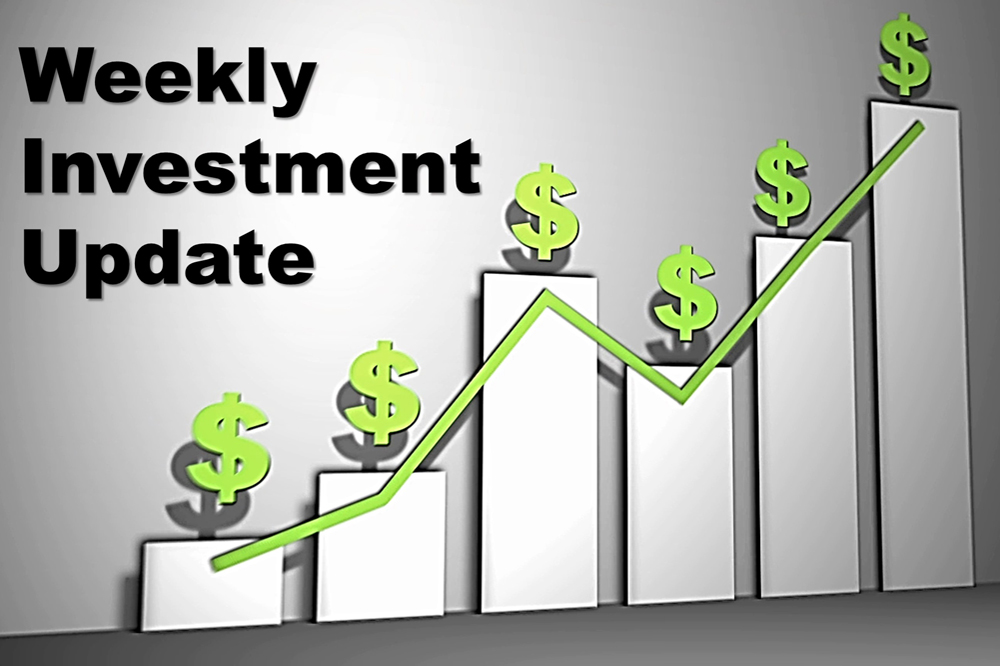 Analysis Of New Employment, Manufacturing & Service Economy Data
Analysis Of New Employment, Manufacturing & Service Economy Data
 Quarter Ends Well Despite Trade War, Inverted Yield Curve & Political Crisis
Quarter Ends Well Despite Trade War, Inverted Yield Curve & Political Crisis
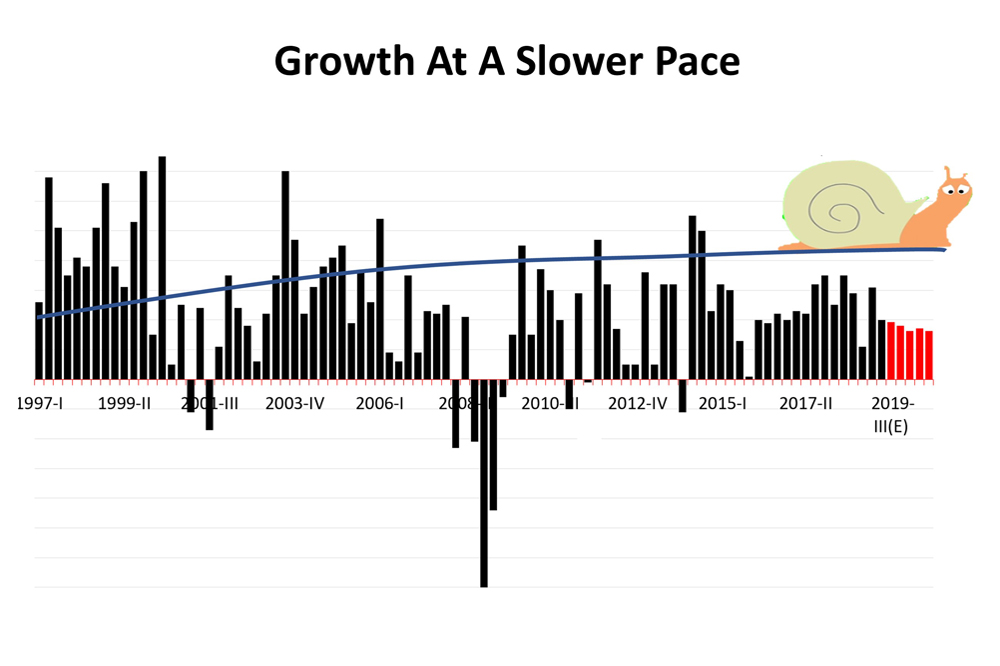 No Recession But A Slower Pace Of Growth
No Recession But A Slower Pace Of Growth
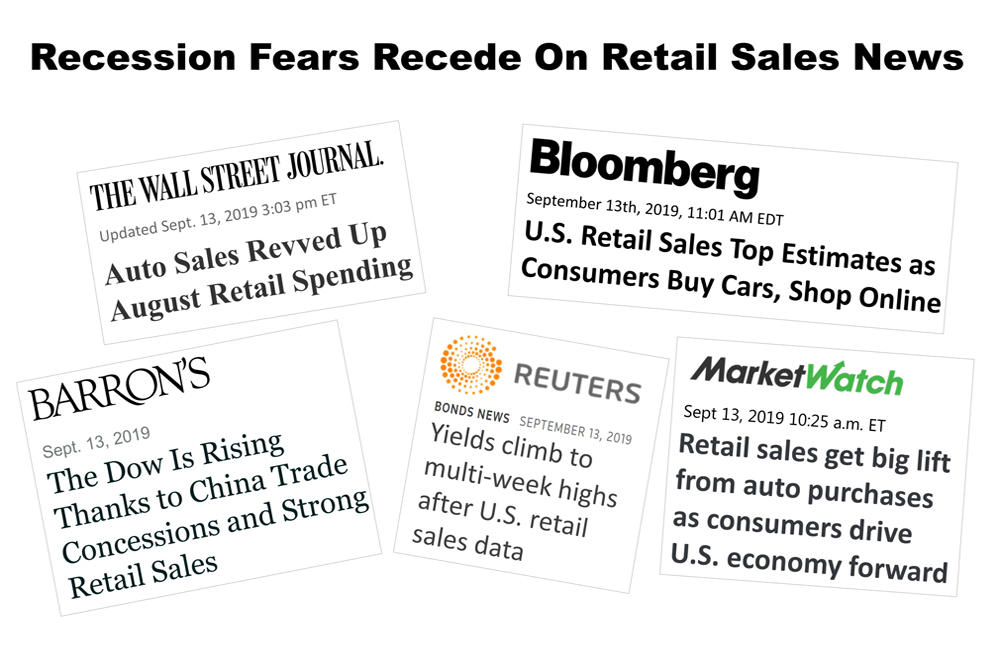 Fickle Financial Headlines Brighten
Fickle Financial Headlines Brighten
 Economy Gets Bad Press Again
Economy Gets Bad Press Again
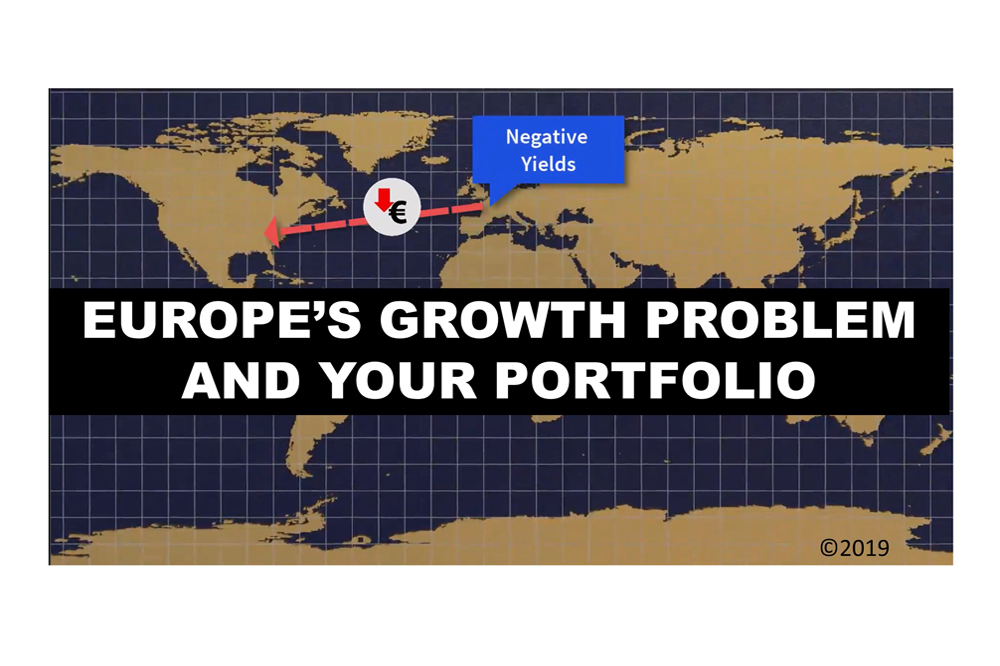 Europe's Growth Problem And Your Portfolio
Europe's Growth Problem And Your Portfolio
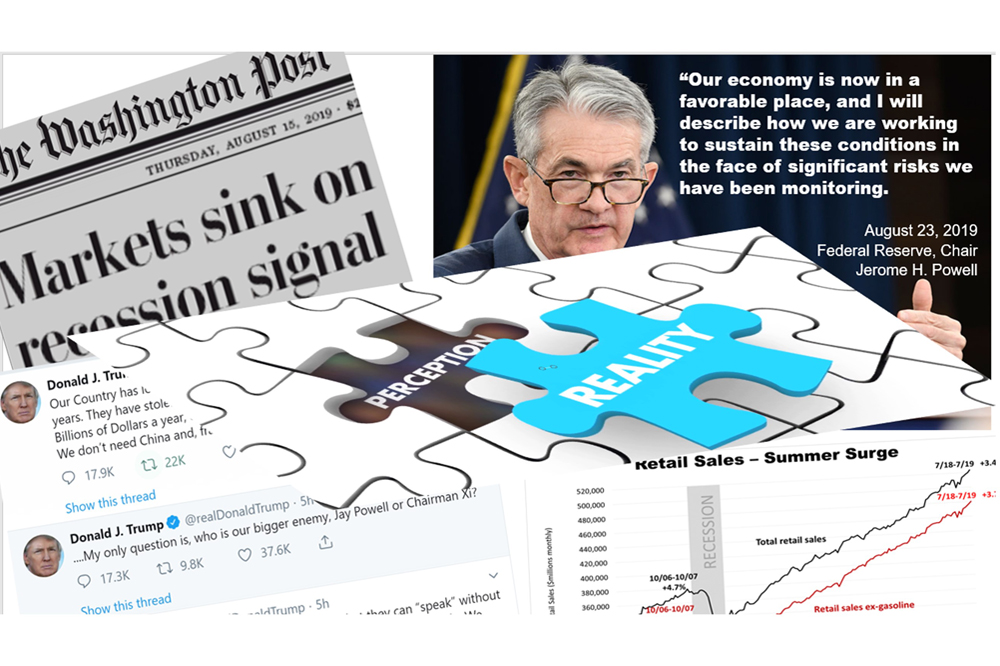 Stocks Dropped 2.6% On Friday, As Reality Gap Seemed To Widen
Stocks Dropped 2.6% On Friday, As Reality Gap Seemed To Widen
 A Prudent Perspective On Recent Volatility
A Prudent Perspective On Recent Volatility
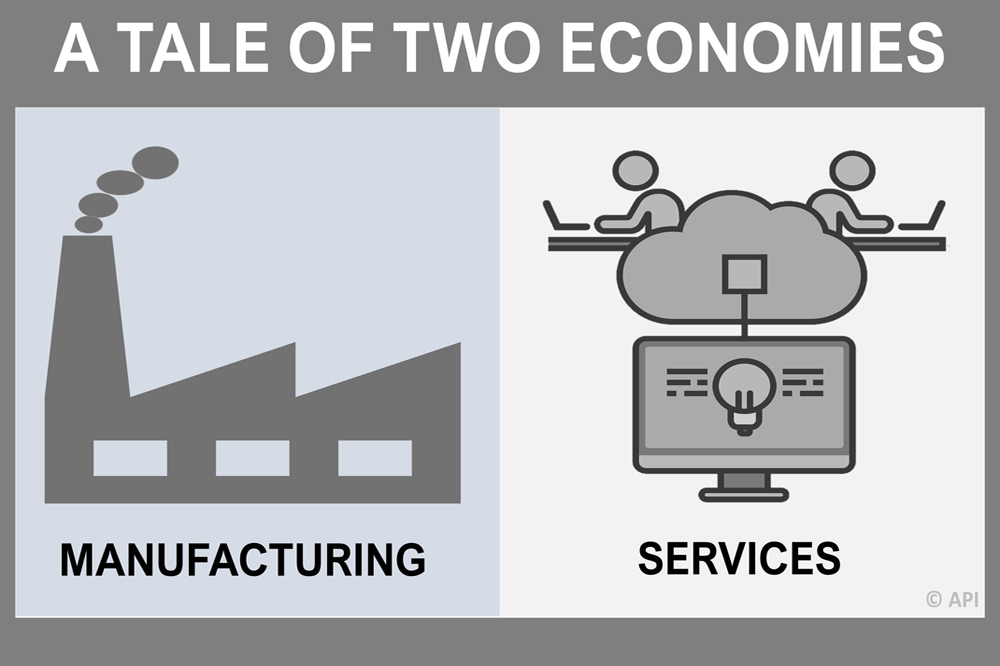 A Tale Of Two Economies
A Tale Of Two Economies
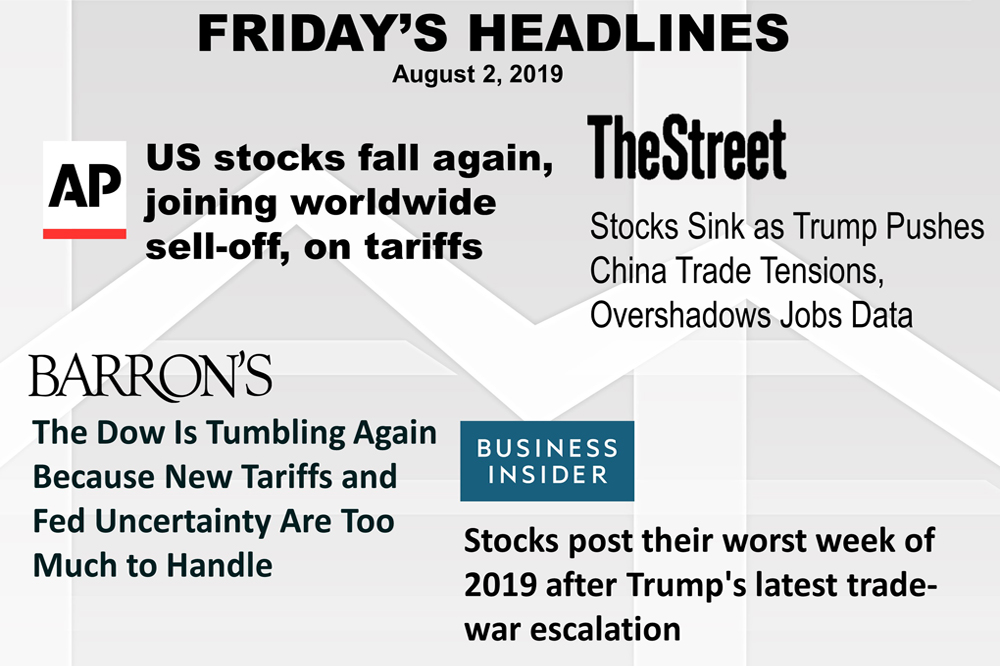 Amid Worries, New Equity Risk Premium Data Explained
Amid Worries, New Equity Risk Premium Data Explained
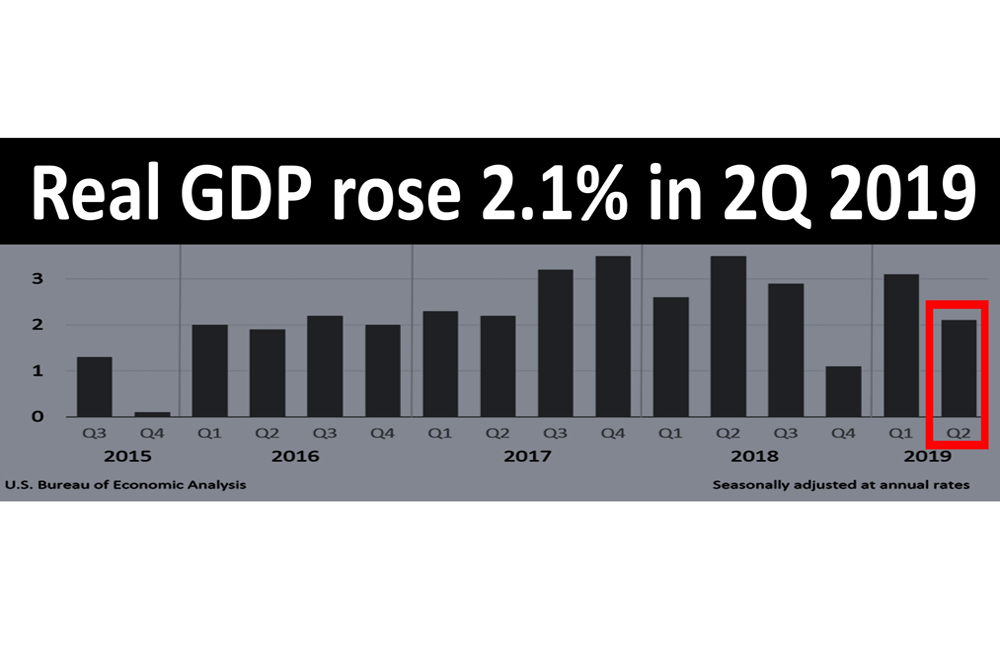 GDP Rose More Than Expected; Stocks Top Record Again
GDP Rose More Than Expected; Stocks Top Record Again
 Slower Growth Confirmed By June Leading Economic Indicators
Slower Growth Confirmed By June Leading Economic Indicators
 'Twas The Last Trading Day Before Christmas
'Twas The Last Trading Day Before Christmas
 Stock Plunge Nears Bear Territory After Fed Hike
Stock Plunge Nears Bear Territory After Fed Hike
 A Last-Minute Reminder To Give Wisely And Charitably
A Last-Minute Reminder To Give Wisely And Charitably
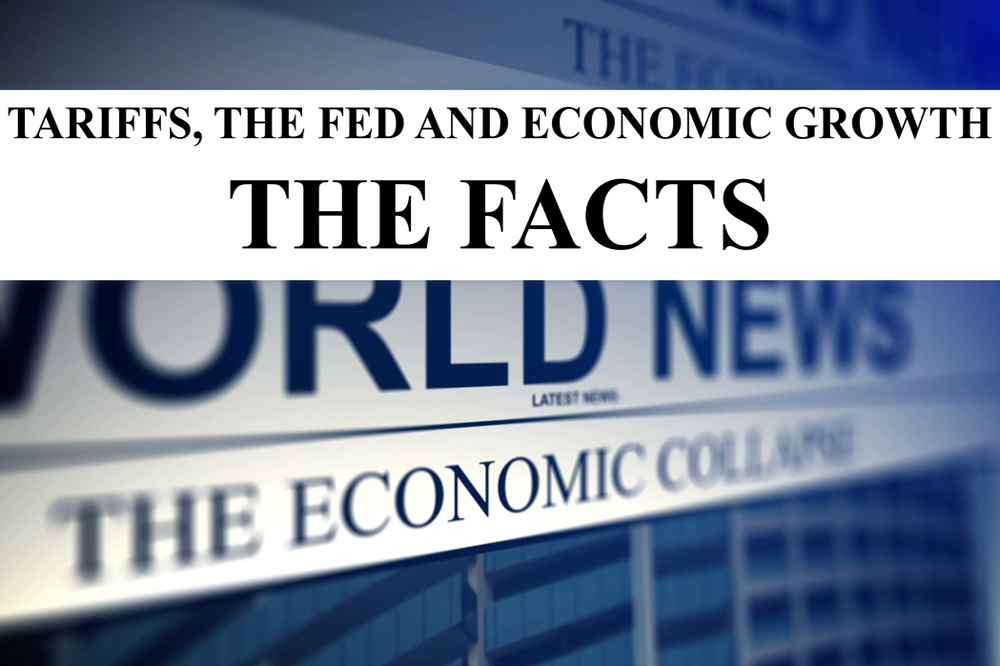 Key Facts About Tariffs, Interest Rates, And Economic Strength
Key Facts About Tariffs, Interest Rates, And Economic Strength
 Fed Chair Extends A Dovish Hand, Lifting Stocks
Fed Chair Extends A Dovish Hand, Lifting Stocks
 S&P 500 Slid Last Week, As Earnings Growth Is Recalibrated
S&P 500 Slid Last Week, As Earnings Growth Is Recalibrated
 Last Chance For Pre-Retired Professionals & Biz Owners
Last Chance For Pre-Retired Professionals & Biz Owners
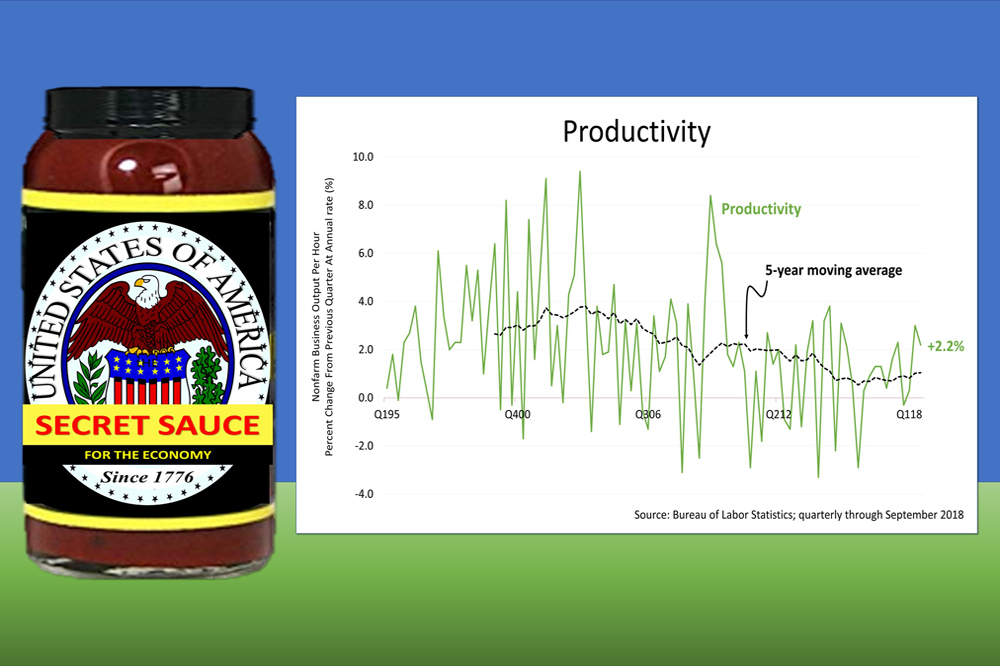 Amid A Swirl Of Controversy, Fed Policy Remained Stable
Amid A Swirl Of Controversy, Fed Policy Remained Stable
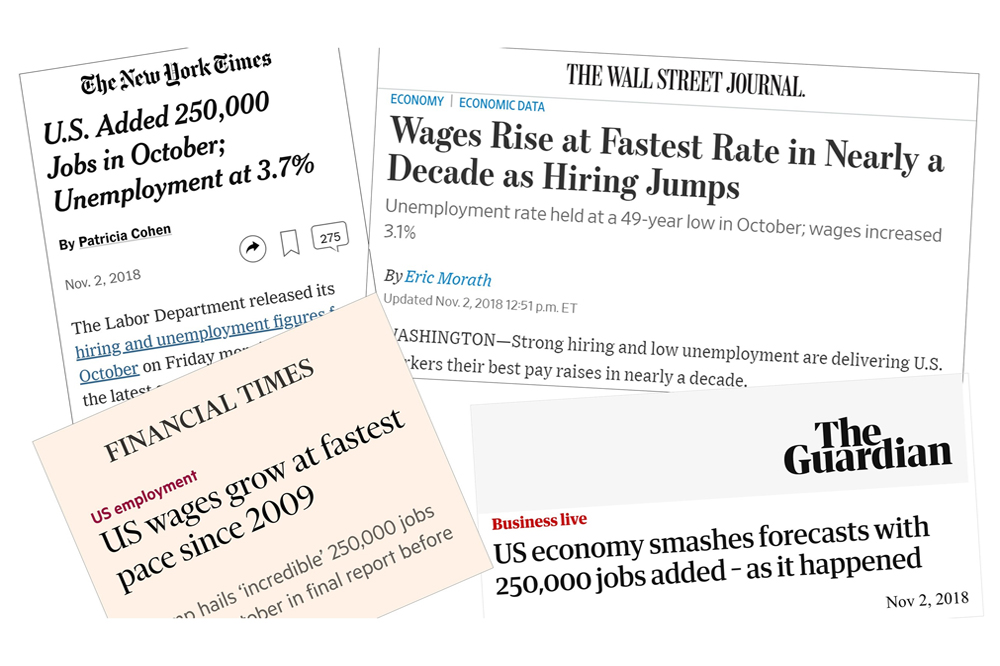 More Good Economic News On Friday
More Good Economic News On Friday
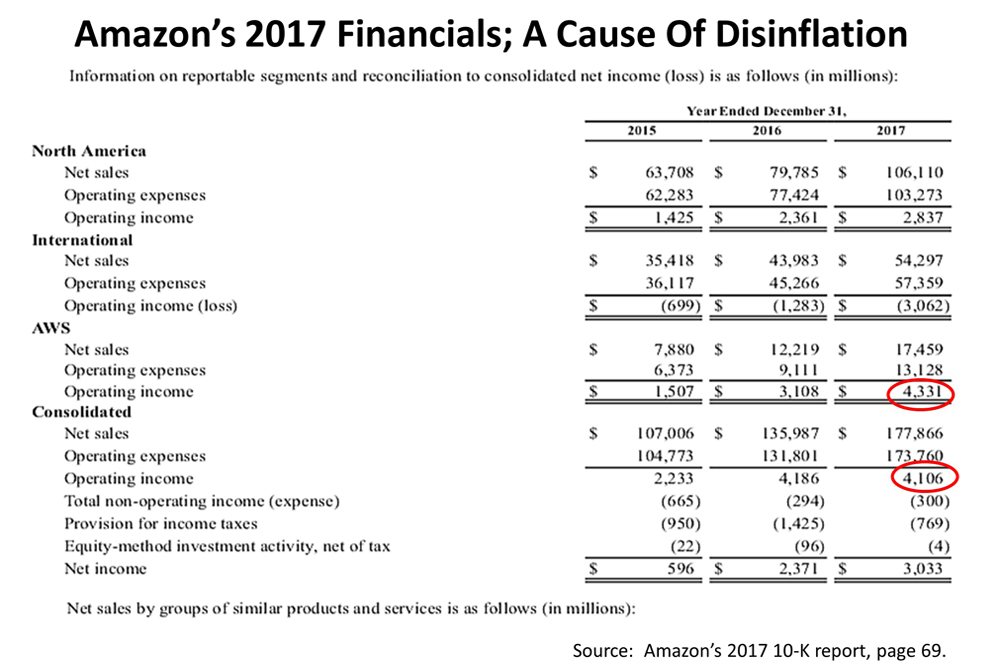 Is Amazon Keeping The Inflation Rate Low?
Is Amazon Keeping The Inflation Rate Low?
 Analyzing The Market Correction
Analyzing The Market Correction
 This Week In Stocks And The Economy
This Week In Stocks And The Economy
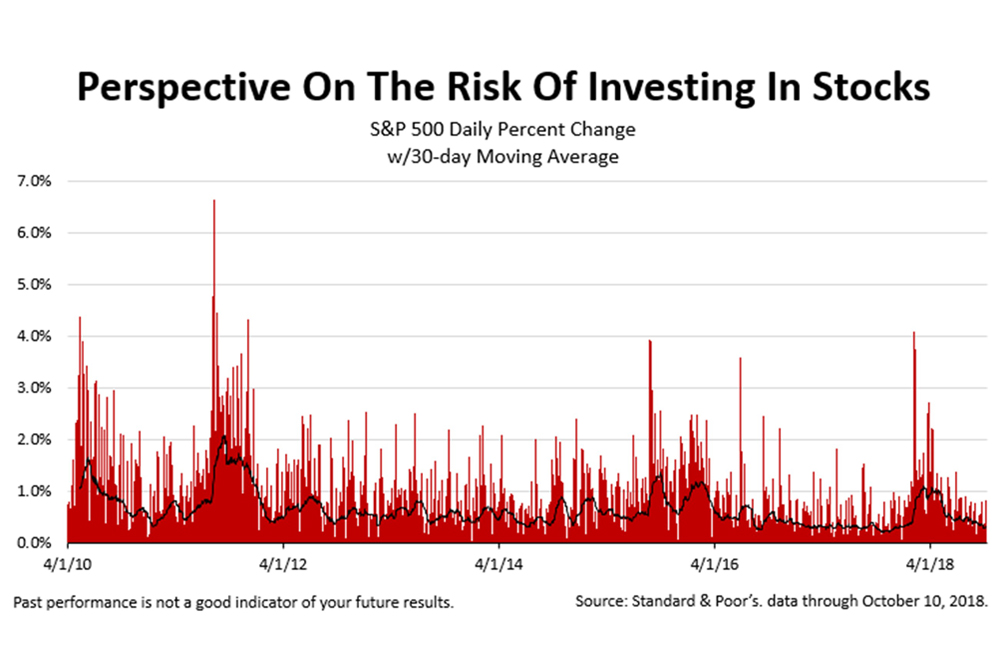 Analyzing The Risk Of Stocks After The 6.9% Drop
Analyzing The Risk Of Stocks After The 6.9% Drop
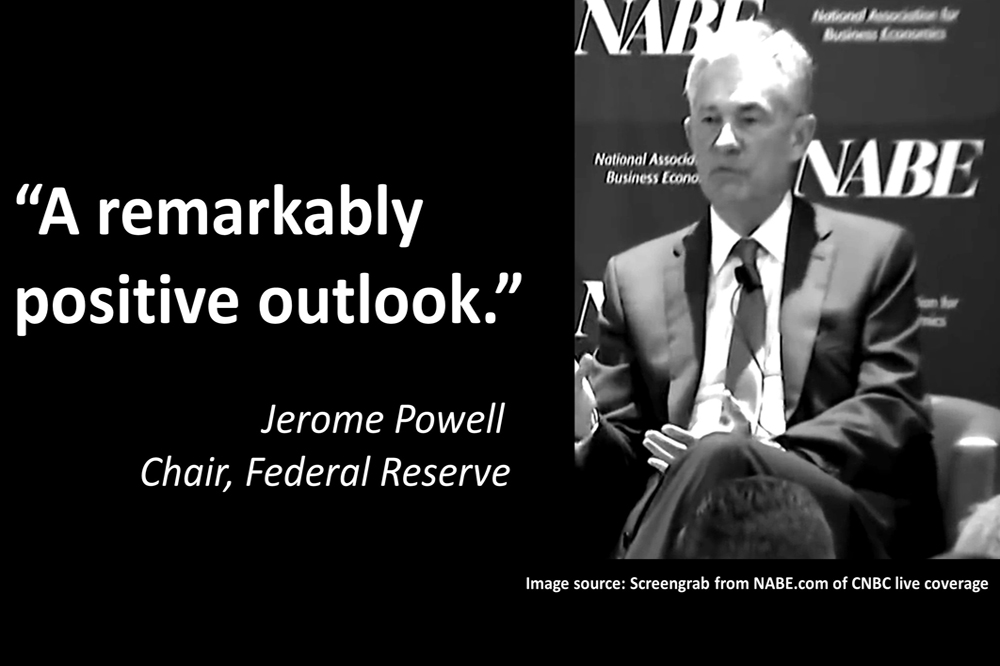 Fed Chair: "We Remain In Extraordinary Times."
Fed Chair: "We Remain In Extraordinary Times."
 With The S&P 500 Up 7.2% In 3Q18, What's Driving Stocks?
With The S&P 500 Up 7.2% In 3Q18, What's Driving Stocks?
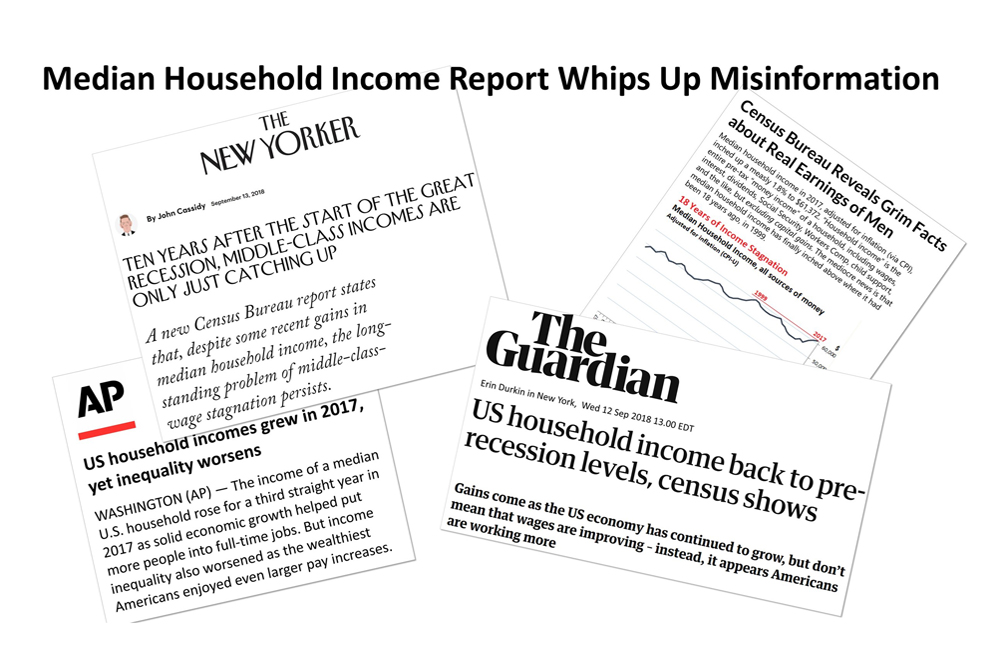 Widespread Misinformation Follows Household Median Income Report
Widespread Misinformation Follows Household Median Income Report
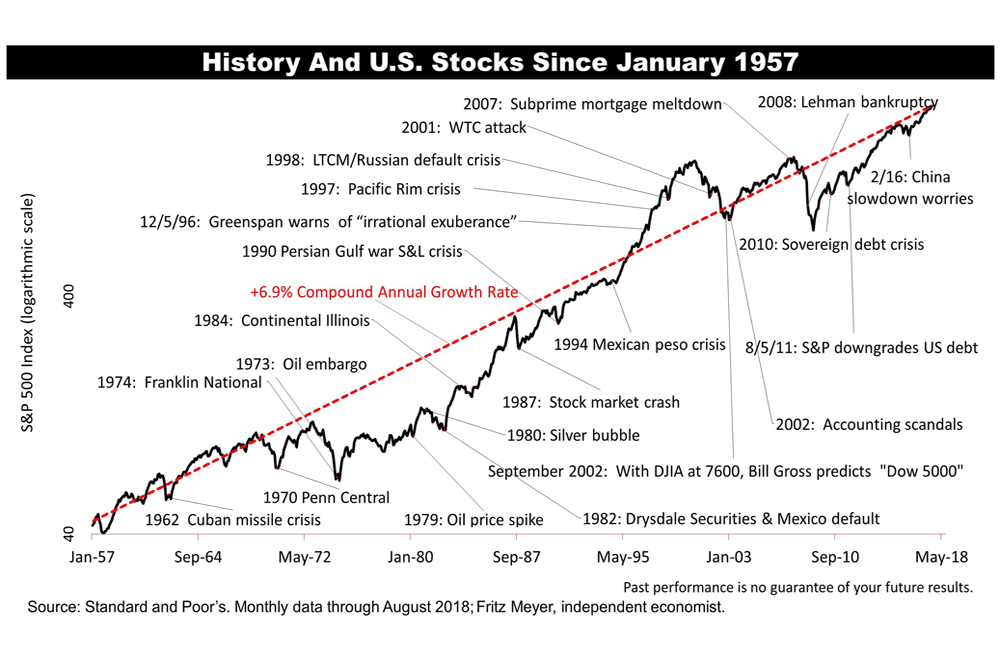 Investment Wisdom At A Poignant Moment In History
Investment Wisdom At A Poignant Moment In History
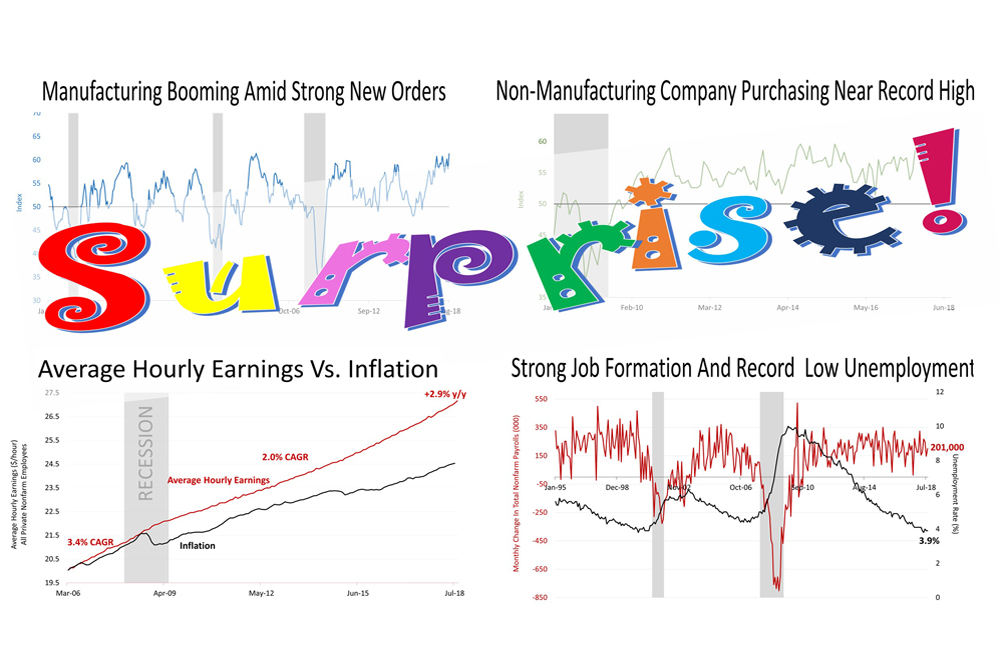 Good Economic Surprises Happening Now
Good Economic Surprises Happening Now
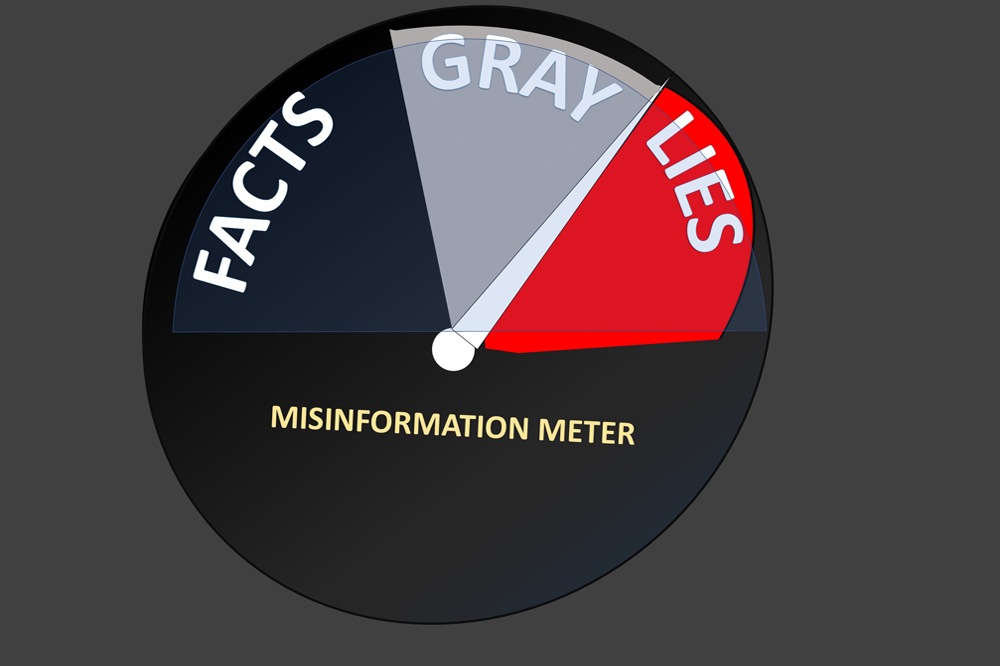 Economic Facts To Prepare For The Elections
Economic Facts To Prepare For The Elections
 Another Member Of Music Royalty Dies With No Will
Another Member Of Music Royalty Dies With No Will
 Top 10 Indications The Economic Outlook Is Brighter Than Expected
Top 10 Indications The Economic Outlook Is Brighter Than Expected
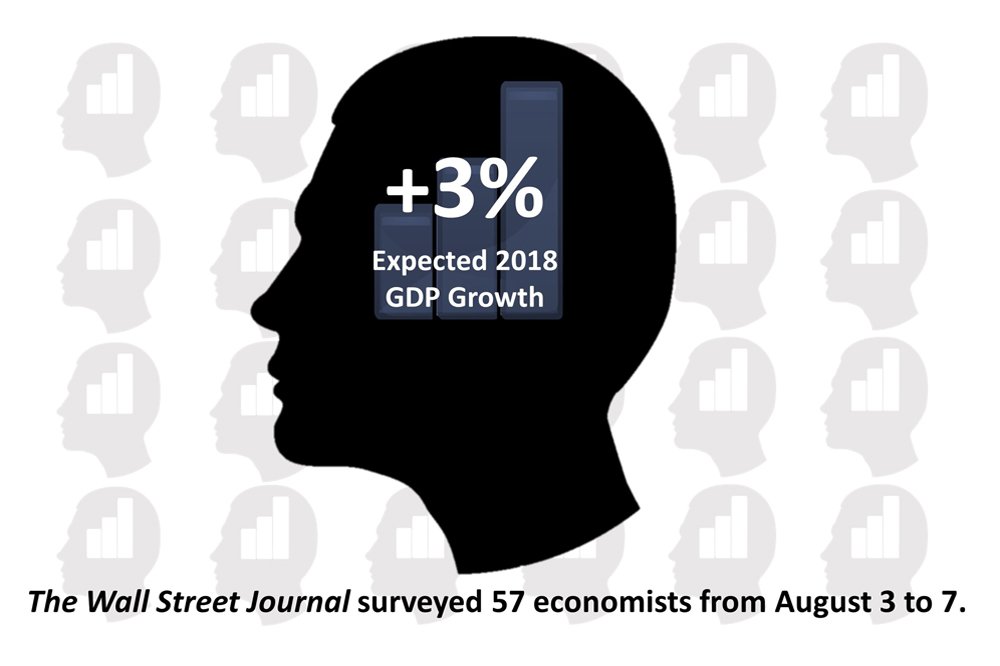 Wealth And Economic News This Week (2-Minute Read)
Wealth And Economic News This Week (2-Minute Read)
 10 Things: New Education Tax Breaks For A Child Or Grandchild
10 Things: New Education Tax Breaks For A Child Or Grandchild
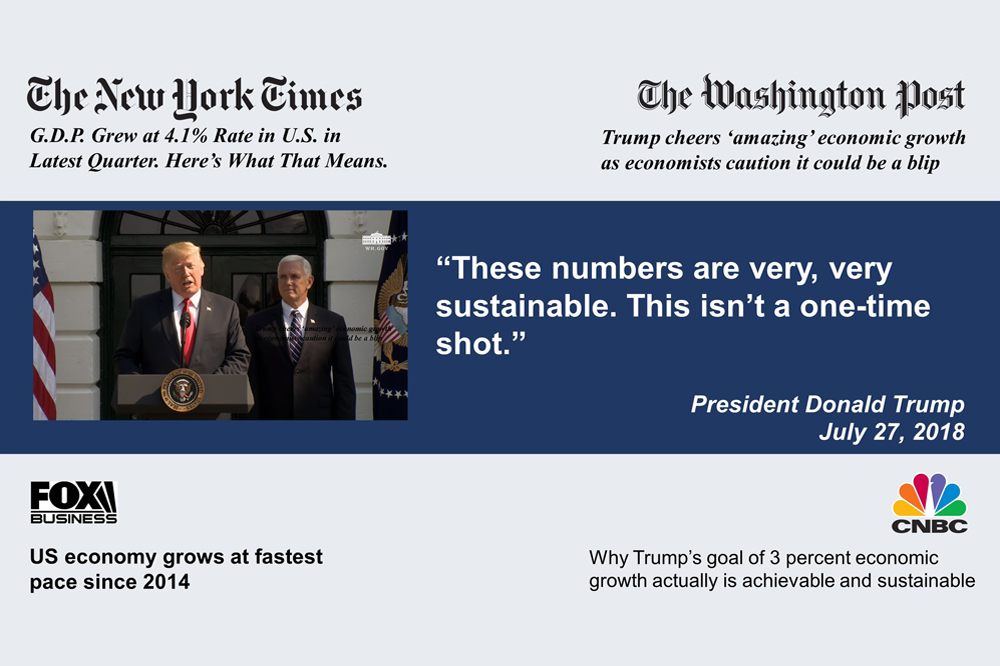 The Truth About U.S. GDP Growth
The Truth About U.S. GDP Growth
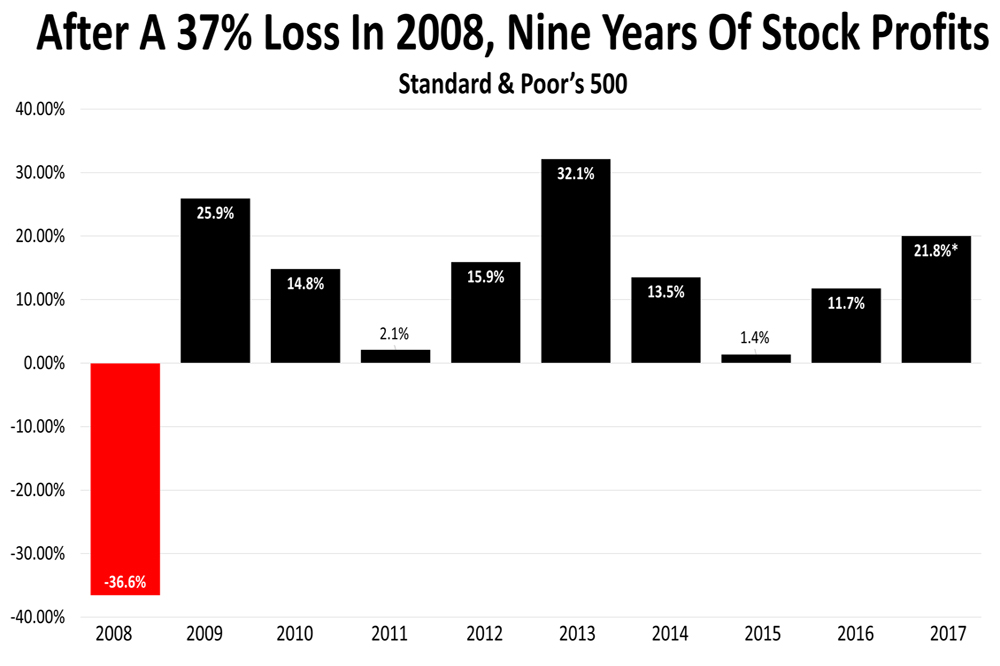 2017 Ends With S&P 500 Total Return Of 21.8%
2017 Ends With S&P 500 Total Return Of 21.8%
 President Signs Historic Tax Cuts And Jobs Act; Stocks Drop A Fraction
President Signs Historic Tax Cuts And Jobs Act; Stocks Drop A Fraction
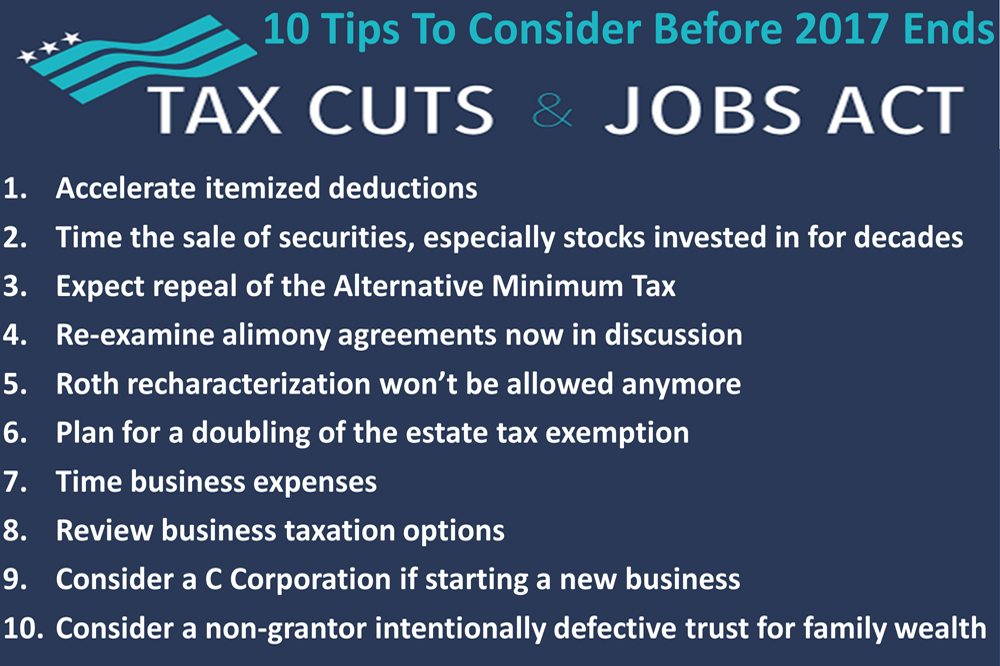 Good News On The Economy And A Tax Alert
Good News On The Economy And A Tax Alert
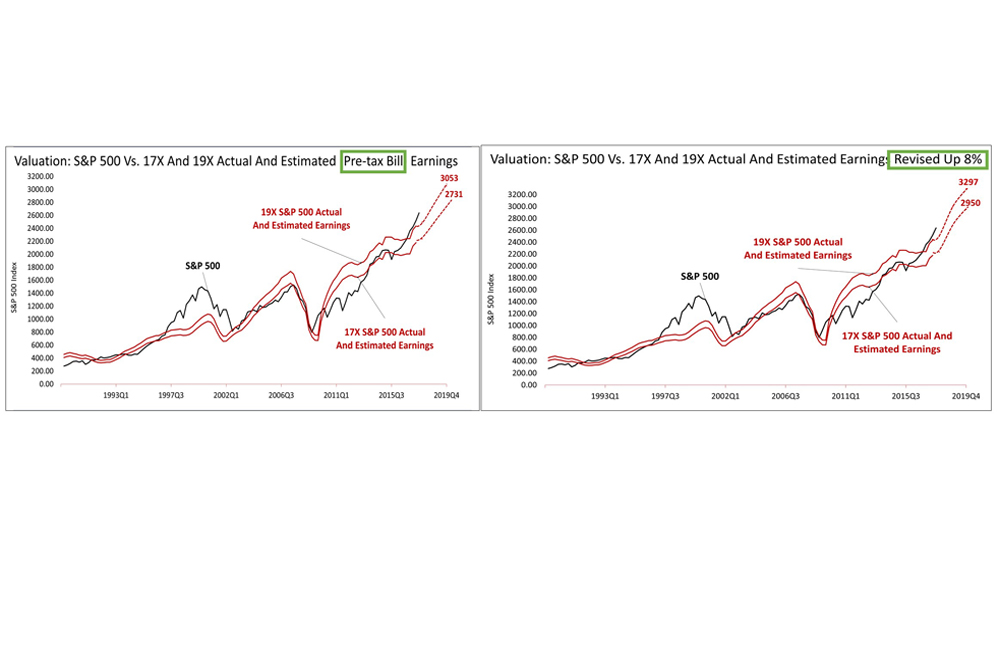 Tax Bill Drives Another Stock Market Record And Gives You To-Dos By Year-End
Tax Bill Drives Another Stock Market Record And Gives You To-Dos By Year-End
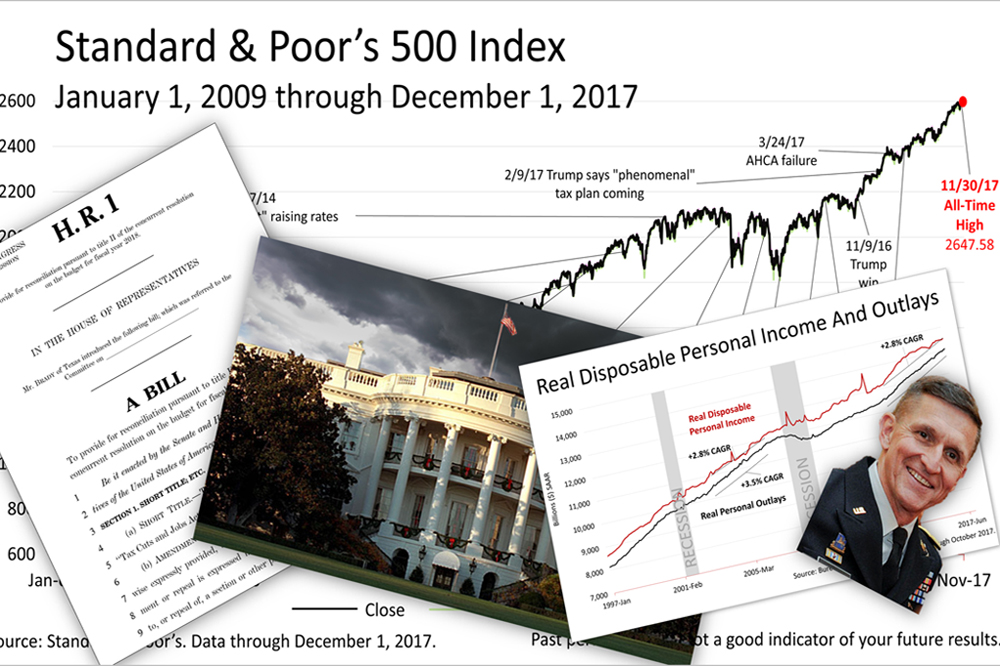 An Eventful Week In Wealth Management
An Eventful Week In Wealth Management
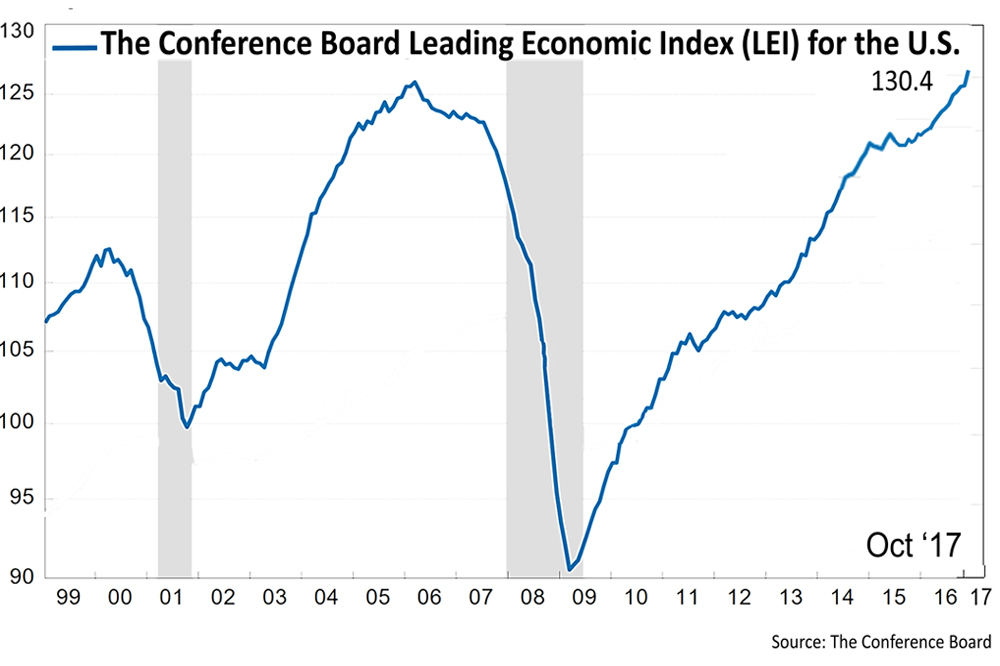 Leading Economic Indicators Surge, Stocks Break Record High Again
Leading Economic Indicators Surge, Stocks Break Record High Again
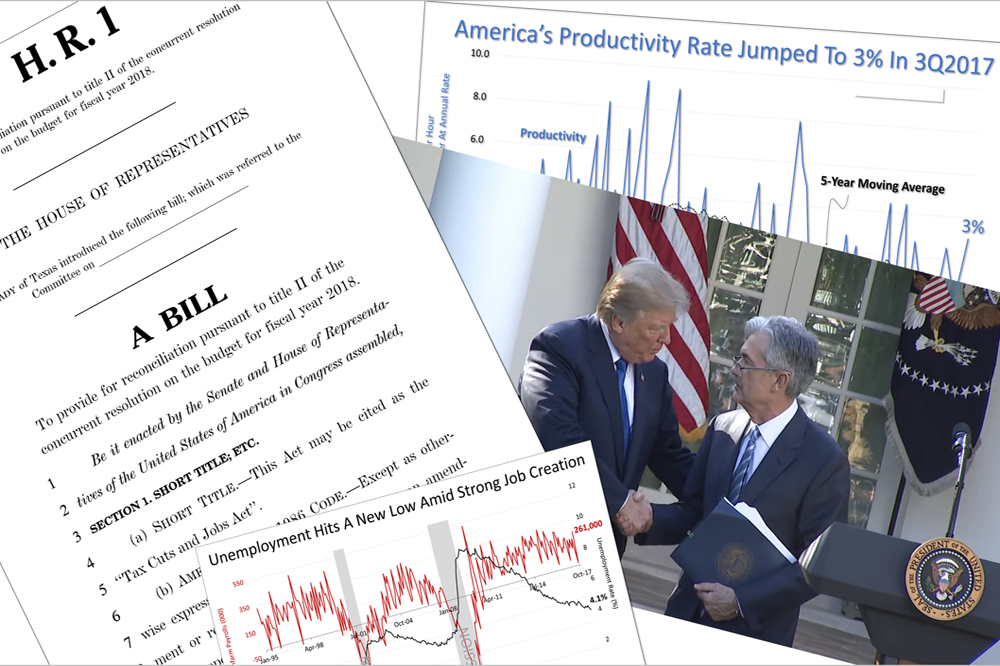 News Affecting Your Wealth Dominated The Headlines This Past Week
News Affecting Your Wealth Dominated The Headlines This Past Week
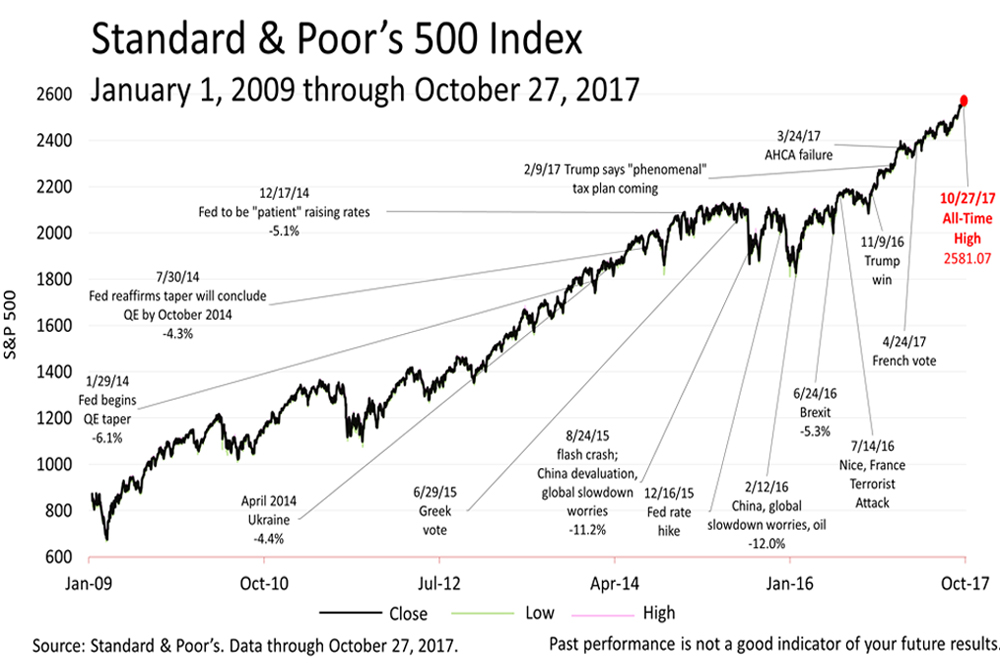 U.S. GDP Growth Surprise Propels Stocks To New Record
U.S. GDP Growth Surprise Propels Stocks To New Record
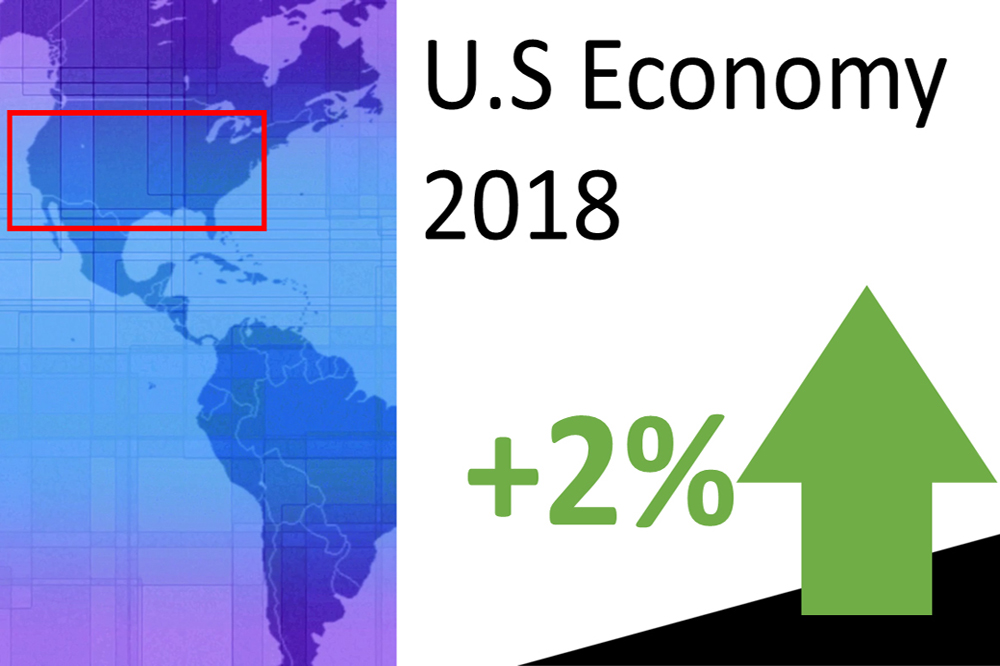 Why Does The S&P 500 Keep Breaking Records?
Why Does The S&P 500 Keep Breaking Records?
 U.S. Stocks Nearly Doubled In The Last Five Years
U.S. Stocks Nearly Doubled In The Last Five Years
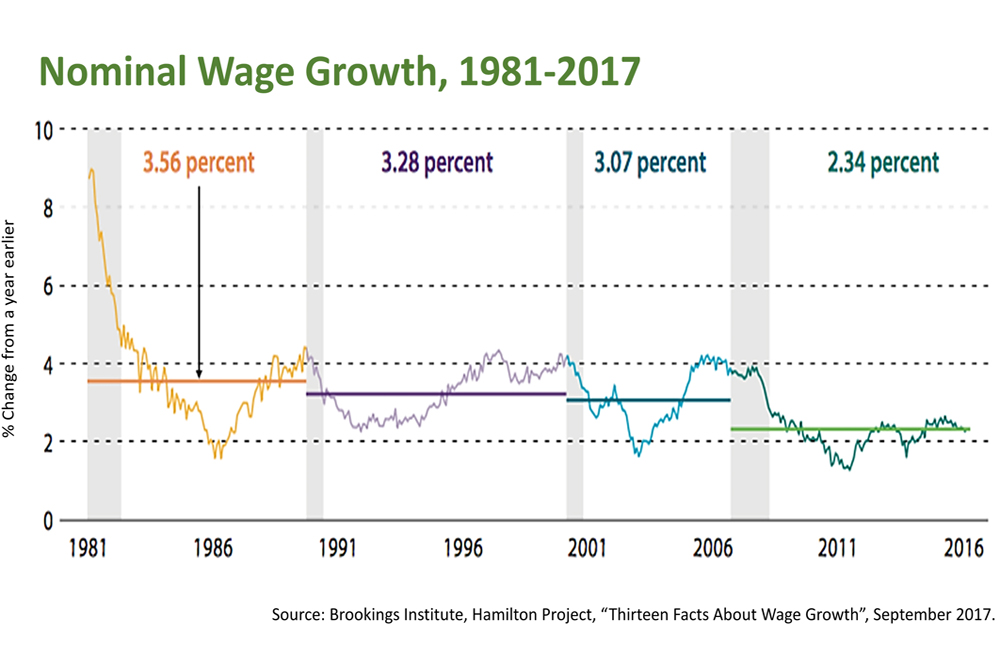 The Big Economic News The Media Keeps Missing
The Big Economic News The Media Keeps Missing
 Trump Tax Plan Upends Year-End Tax Planning
Trump Tax Plan Upends Year-End Tax Planning
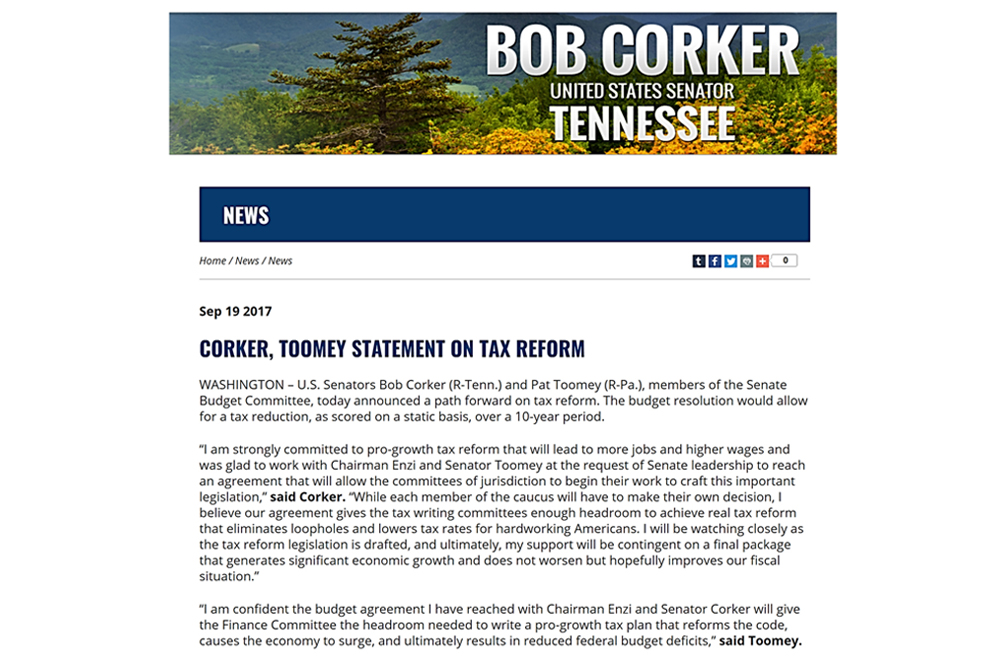 Key Senators Agree On A Road To Cutting Taxes This Year
Key Senators Agree On A Road To Cutting Taxes This Year
 Year-End Tax Planning Could End With A Thrill This Year
Year-End Tax Planning Could End With A Thrill This Year
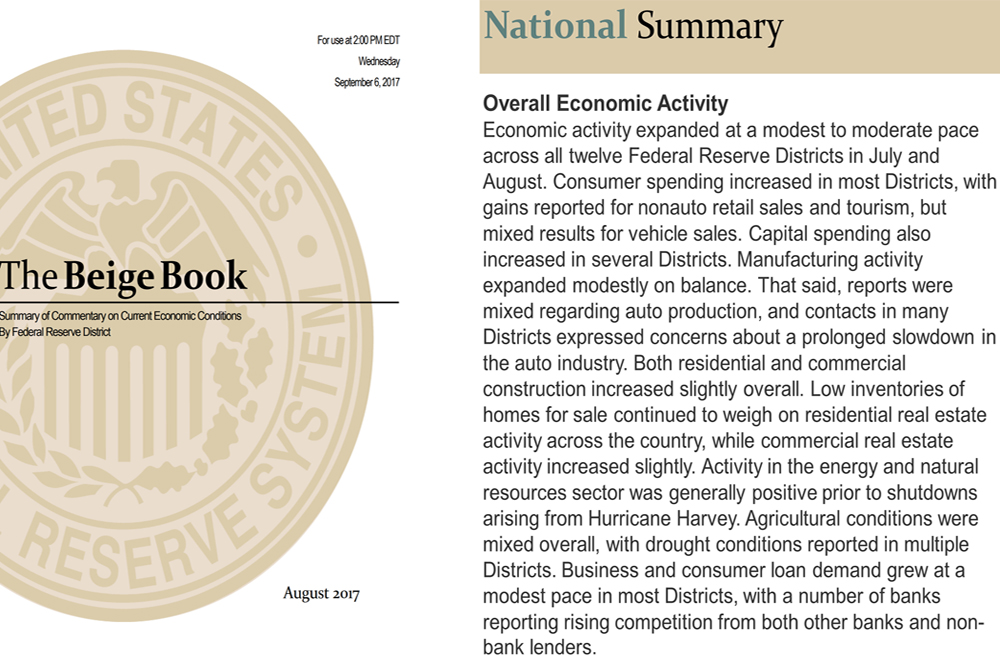 This Week's News About Wealth Management
This Week's News About Wealth Management
 Stocks Dropped For Second Straight Week Amid Strengthening Economic Reports
Stocks Dropped For Second Straight Week Amid Strengthening Economic Reports
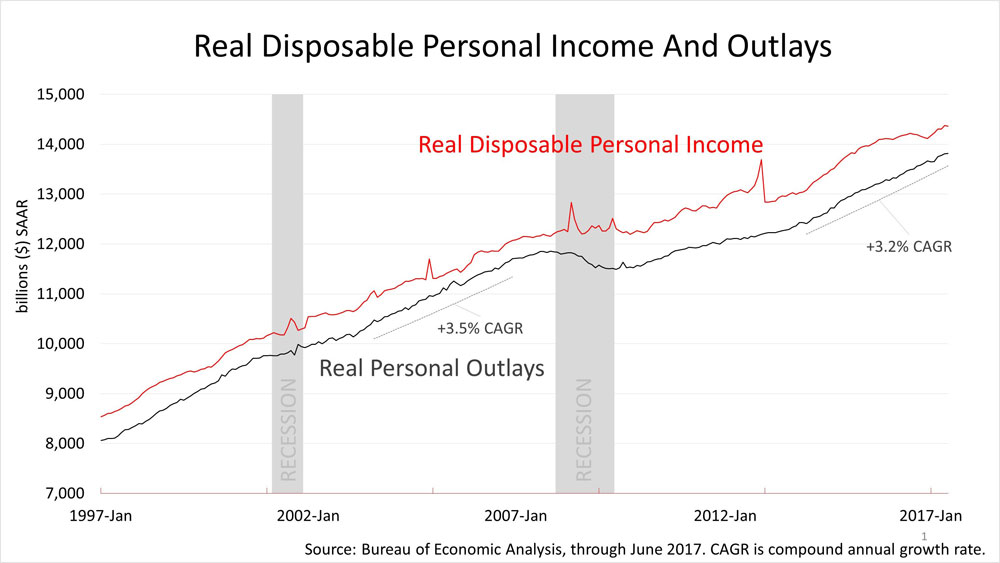 With Stocks Near All-Time High, Personal Income And Employment Data Are Released
With Stocks Near All-Time High, Personal Income And Employment Data Are Released
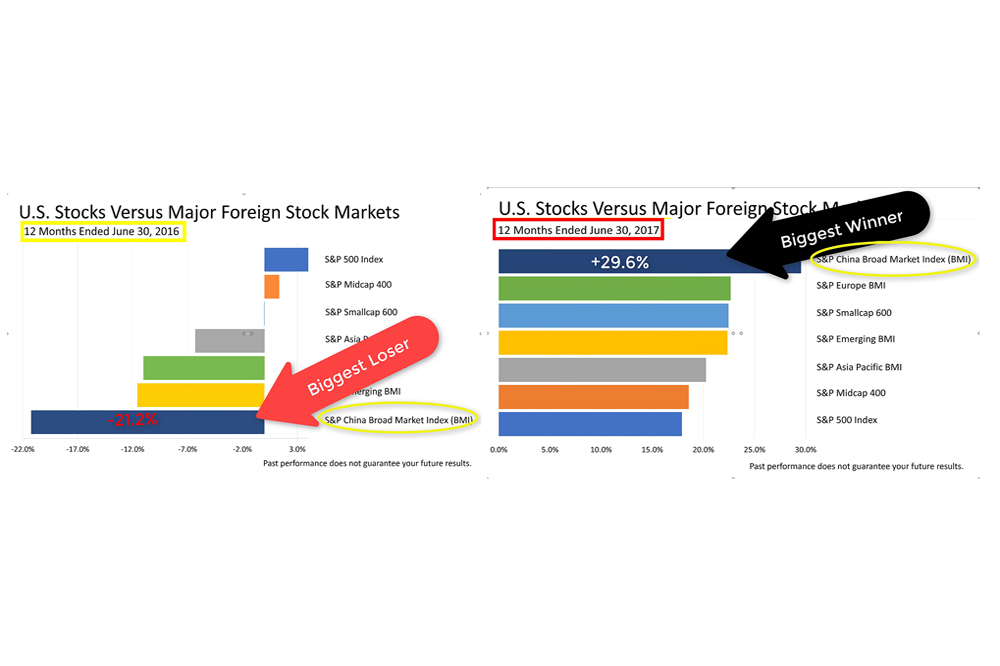 How Strategic Asset Allocation And Rebalancing Worked In The 12 Months Ended June 30
How Strategic Asset Allocation And Rebalancing Worked In The 12 Months Ended June 30
 Wall Street's "Top" Strategists' Recommendations Are Like Monkeys Throwing Darts
Wall Street's "Top" Strategists' Recommendations Are Like Monkeys Throwing Darts
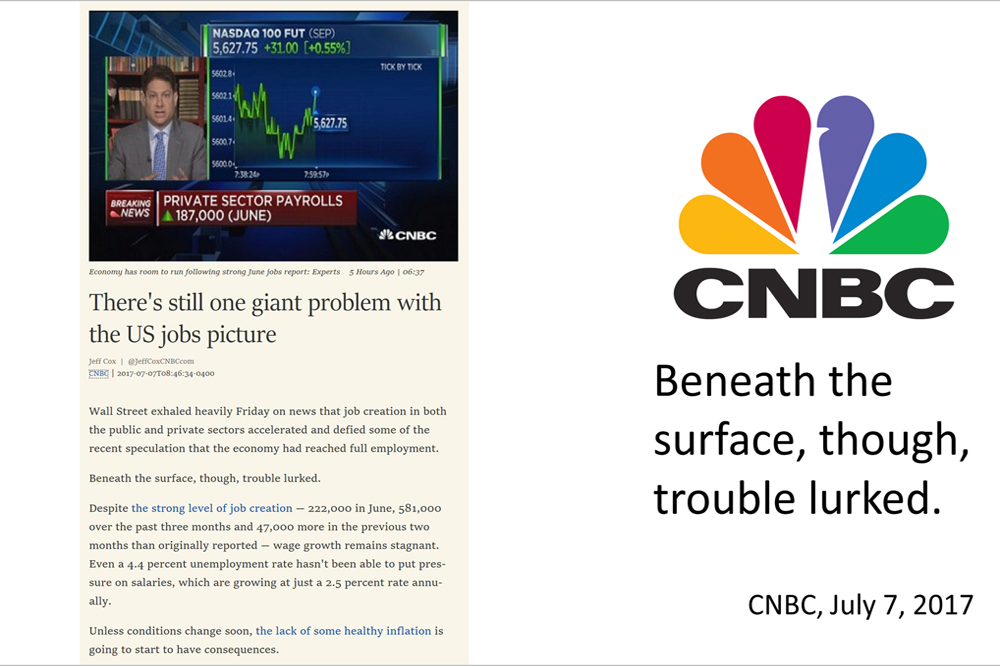 Stronger Than Expected Jobs Creation But CNBC Reports "Trouble Lurked"
Stronger Than Expected Jobs Creation But CNBC Reports "Trouble Lurked"
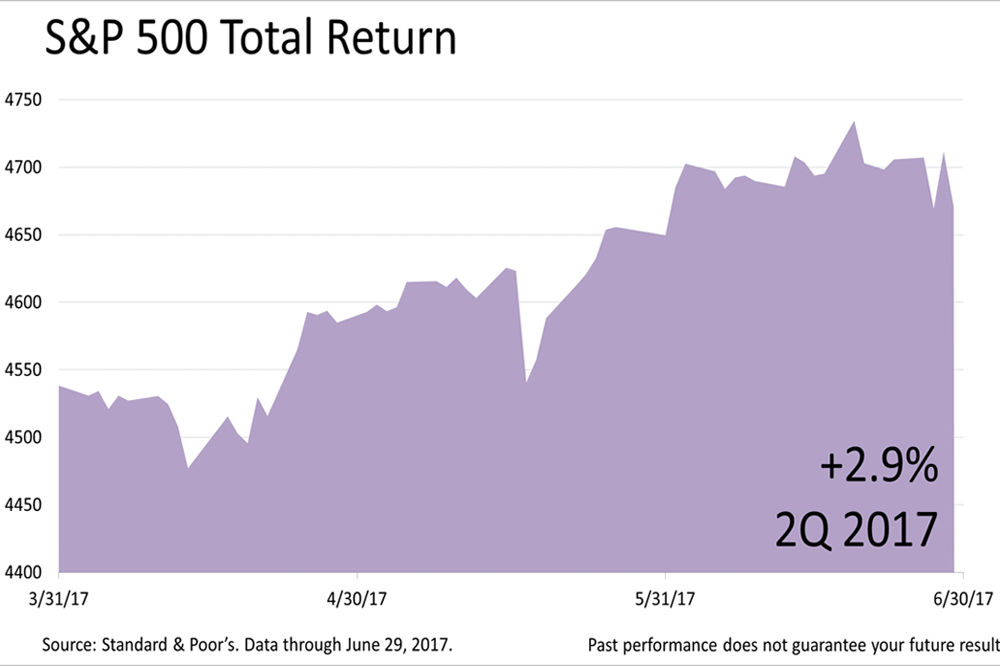 S&P 500 Returned 2.9% In 2nd Quarter And 9.2% In First Half Of 2017
S&P 500 Returned 2.9% In 2nd Quarter And 9.2% In First Half Of 2017
 Despite Distractions, Demographics Are Poised To Drive U.S. Long-Term Growth
Despite Distractions, Demographics Are Poised To Drive U.S. Long-Term Growth
 The Federal Reserve's Historic Economic Experiment Entered A New Phase
The Federal Reserve's Historic Economic Experiment Entered A New Phase
 Despite The Washington Sideshow, Stocks Closed At A New All-Time High
Despite The Washington Sideshow, Stocks Closed At A New All-Time High
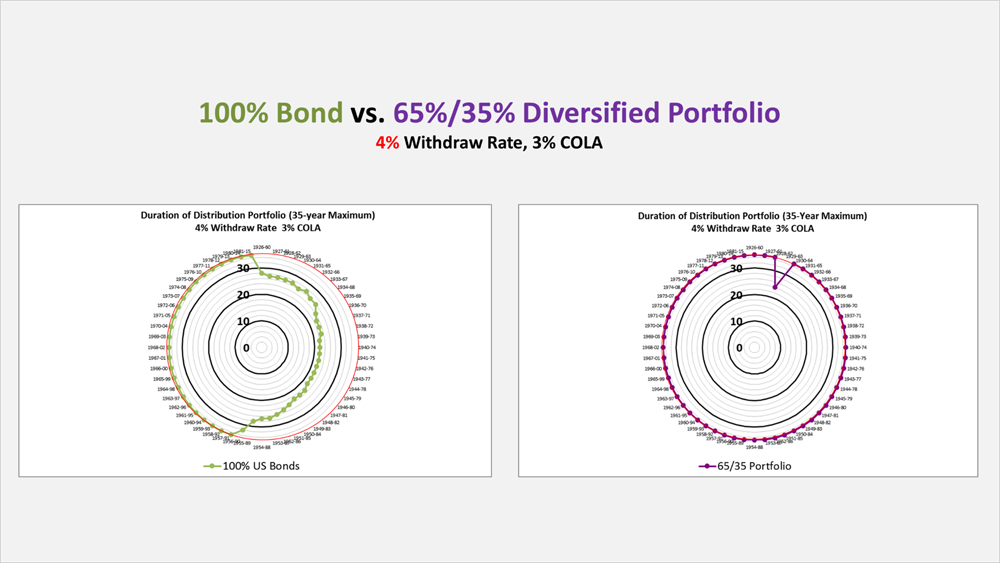 Visualizing The Risk Of Running Out Of Money In Retirement
Visualizing The Risk Of Running Out Of Money In Retirement
 Wall Street's Strategists About As Good As Monkeys Throwing Darts
Wall Street's Strategists About As Good As Monkeys Throwing Darts
 Stocks Surge 2% Friday But Why Are They So Volatile Lately?
Stocks Surge 2% Friday But Why Are They So Volatile Lately?
Dachtler Wealth Management
2130 East Bidwell Street
Folsom, CA 95630
P: 1-800-333-1855
F: 1-916-933-5639
info@dachtlerwealth.com
Stocks Closed At A Record High
The Standard & Poor’s 500 stock index closed Friday at a new all–time high, ending the first quarter of the year with a gain of 10%. That’s as much as
Slick TV ads often make financial planning and wealth management sound simple, but it’s usually not. Managing wealth requires knowing a lot about highly technical topics, like taxes, government
This is not an offer of securities in any jurisdiction, nor is it specifically directed to a resident of any jurisdiction. As with any security, request a prospectus from your registered representative. Read it carefully before you invest or send money. Securities products are limited to residents of AZ, CA, CO, FL, GA, ID, IL, IN, KS, MA, MO, NC, NE, NM, NV, OR, TN, TX, UT and WA.
Securities and Advisory Services offered through Calton & Associates, Inc. Member FINRA/SIPC. Dachtler Wealth Management, LLC and Calton are not affiliated. www.finra.org, www.sipc.org
A Representative from Dachtler Wealth Management will contact you to provide requested information.
Representatives of Calton & Associates, Inc do not provide tax or legal advice. Please consult your tax advisor or attorney regarding your situation.
CA License # 0658362
This website uses cookies for navigation, content delivery and other functions. By using our website you agree that we can place cookies on your device. I understand

